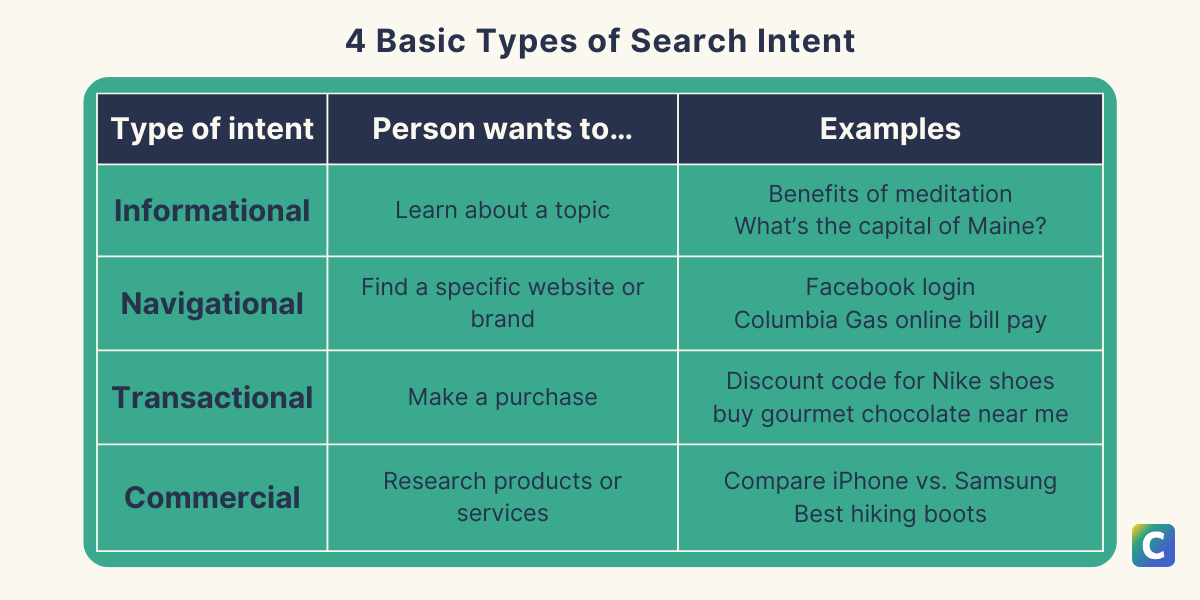Darsazma News Hub
Your go-to source for the latest news and insightful information.
Intentions Unveiled: What Your Searches Reveal
Uncover hidden truths behind your online searches and discover what your intentions reveal about you in this eye-opening blog!
Decoding Your Digital Footprint: What Your Searches Say About You
Your digital footprint consists of all the traces you leave behind while using the internet, making it a critical aspect of your online identity. Every search query you enter into a search engine sheds light on your interests, preferences, and even your personality. By analyzing your search patterns, companies and marketers can tailor their offerings to meet your needs, while you may remain largely unaware of this personal insight. According to Pew Research, many individuals are concerned about their digital privacy, yet they often underestimate how much of this information is revealed through simple keywords. When you search for specific topics, not only are you directing online behavior, but you are also crafting a narrative that reflects your thoughts and desires.
Moreover, your digital footprint has broader implications, particularly in the realm of social media and online communities. The data collected from your searches can be aggregated to create comprehensive profiles, affecting everything from targeted advertising to job recruitment practices. Increasingly, employers are leveraging this information to evaluate potential candidates based on their search history and online presence. As stated by Forbes, being aware of what your searches say about you is crucial for managing your online reputation. It's essential to regularly audit your digital footprint to ensure that your online persona aligns with the image you wish to project.

The Hidden Meanings Behind Your Online Searches: An In-Depth Analysis
In today's digital age, every online search we conduct is a reflection of our interests, needs, and motivations. Understanding the hidden meanings behind these searches can reveal valuable insights into consumer behavior. For instance, an individual searching for 'best running shoes' is not just looking for products; they may also be driven by aspirations for a healthier lifestyle or goals related to fitness. As highlighted in a [study by Google](https://www.blog.google/products/ads/information-impact-google-search/), search queries often provide a glimpse into the underlying emotions and desires of users, making them a powerful tool for marketers and businesses alike.
Furthermore, the reasons behind our online searches can be vastly different from what they appear on the surface. A search for 'how to cook quinoa' may seem straightforward, yet it could stem from diverse motivations such as dietary restrictions, a desire to impress guests, or simply an interest in exploring new cuisines. By analyzing these patterns, marketers can tailor their strategies to better meet the needs of their audiences. For more insights into how search behavior can inform marketing strategies, see this article from [HubSpot](https://blog.hubspot.com/marketing/search-behavior-analysis).
Are Your Search Intentions Aligned with Your Goals? Exploring the Connection
Understanding the concept of search intentions is crucial for anyone looking to optimize their online presence. Search intentions refer to the specific goals users have when querying a search engine, and aligning these intentions with your own business goals can significantly enhance your digital strategy. For instance, if your goal is to increase brand awareness, you should focus on creating content that satisfies broad informational queries. Conversely, if your aim is to drive sales, targeting transactional queries will likely yield better results. Learn more about search intent and its impact on your marketing efforts.
To effectively bridge the gap between search intentions and your objectives, start by conducting thorough keyword research. Identify the specific phrases your target audience is using and analyze the intent behind them. Are they looking for information, making a comparison, or ready to purchase? Utilizing tools like Ahrefs and SEMrush can help you uncover valuable insights. Ultimately, making your content relevant to both the user's intent and your business goals is key to achieving better engagement and conversion rates.